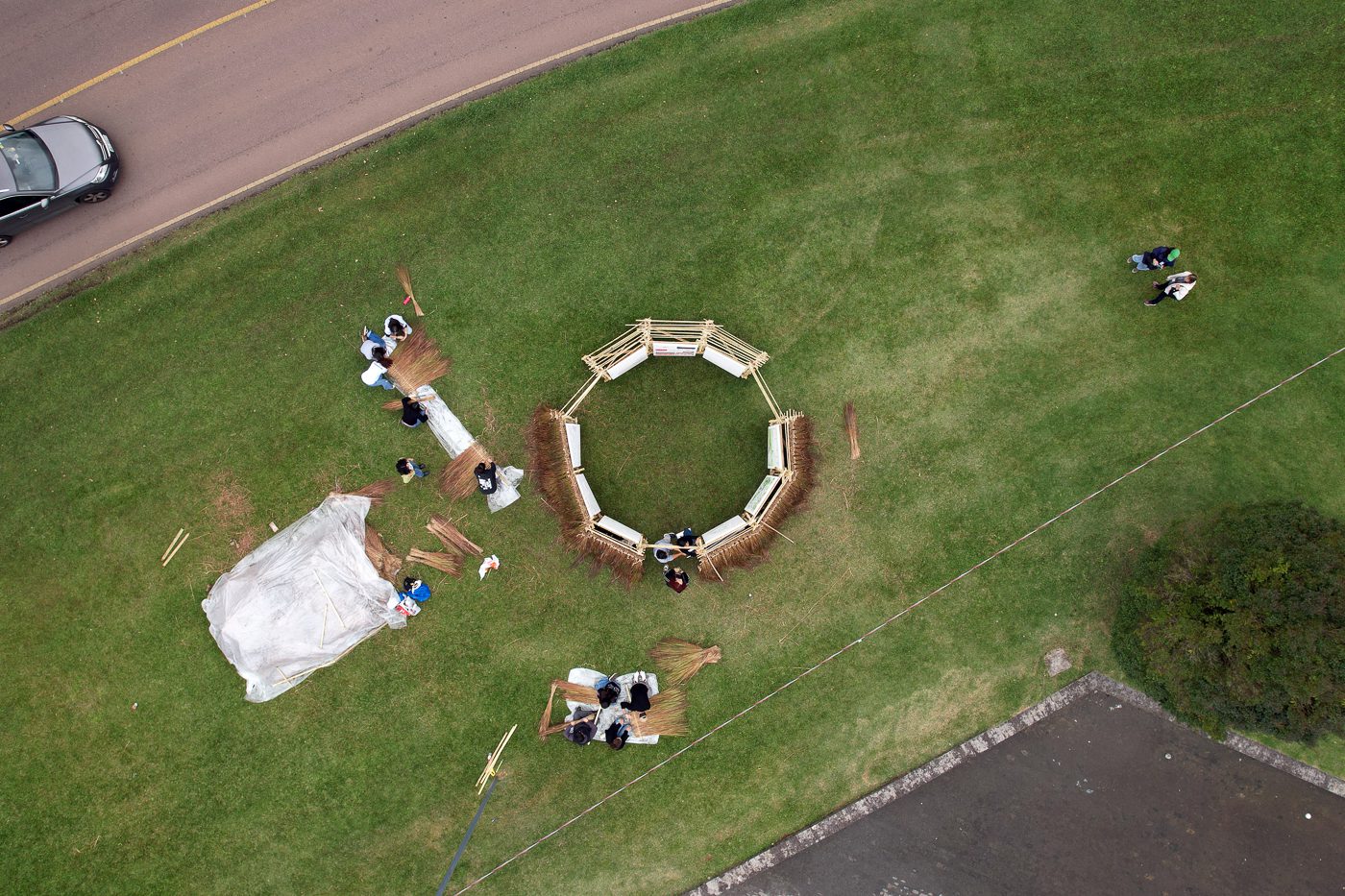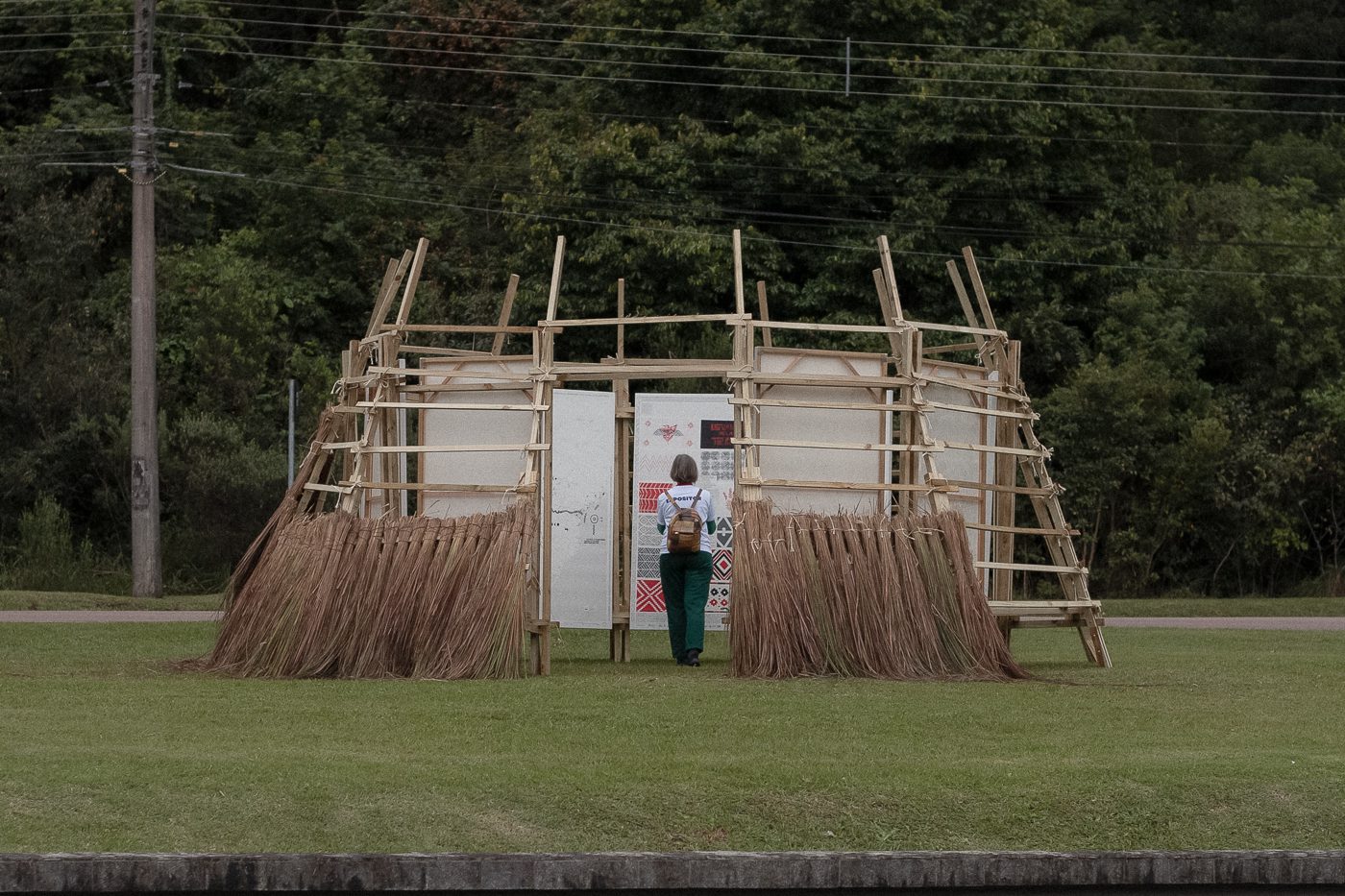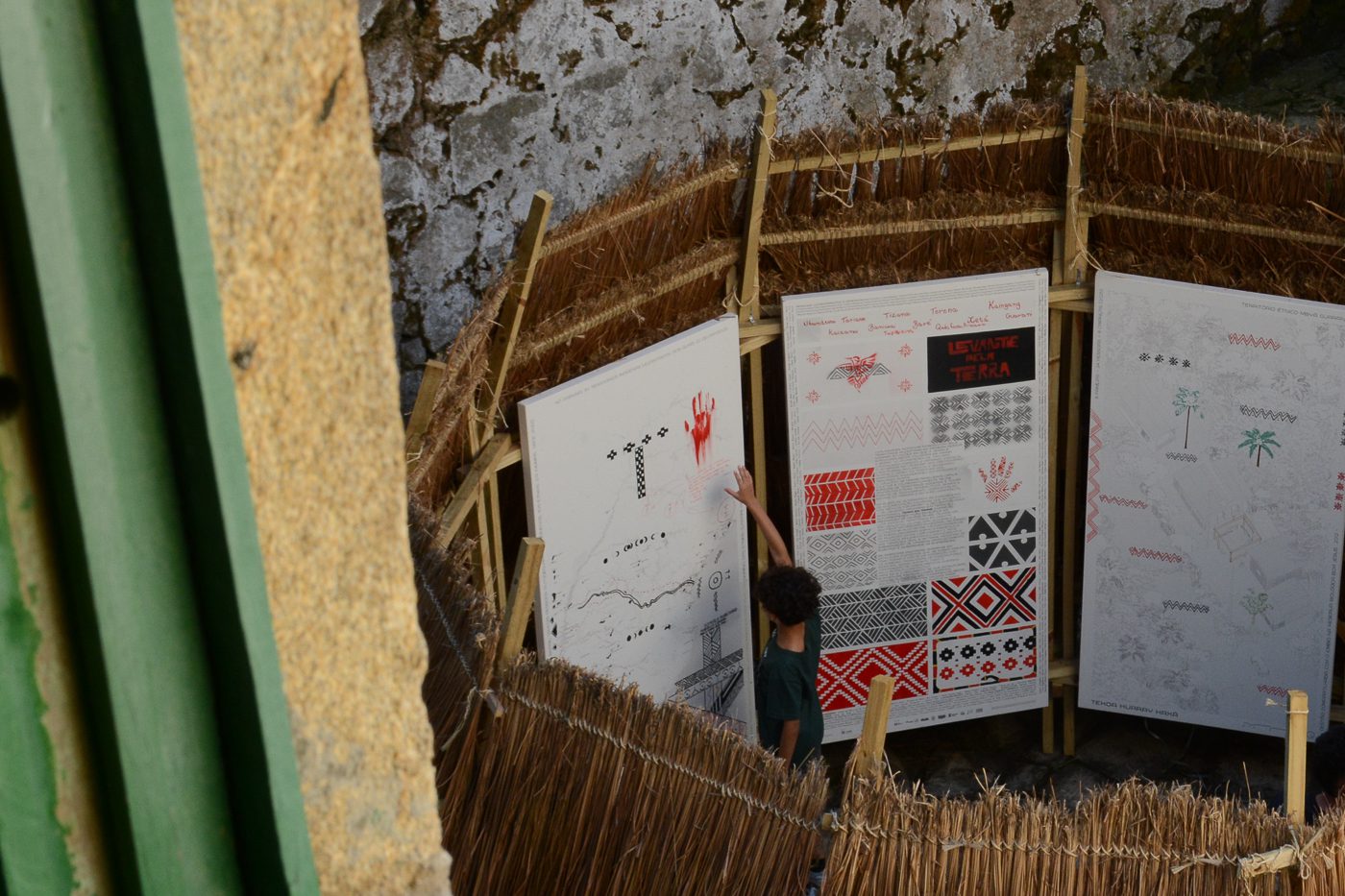Indigenous communities present their ancestral territories in the first person. They narrate situations in which the LAND is intentionally placed in a WEFT. Clay interspersed with bamboo builds walls and defines spaces; geography in the warp of cartographies forms arguments and delineates boundaries; the word in the fabric of narratives engenders strategies and charts directions. The set of maps produced critically, collectively, and collaboratively brings together stories from Indigenous Territories and touches on different ethnicities, perspectives, biomes, and forms of agency experienced in the State of Paraná and its surrounding areas.
Seeking an alternative to colonial documentation experiences, which over the centuries have forged—and continue to forge—an exoticized and anachronistic original universe, TERRA EM TRAMA attempts specific self-representation in addressing one of the crucial themes of the Indigenous struggle: disputed territories. They are described with academic precision and annotated with ancestral precision, constituting cartographic self-portraits. The maps discuss the presence and relationships between Communities and their Territories, implementing procedures from Indigenous oral and material traditions of layering, inventive exploitation, and diversity of expressions.
The annotated panels are supported by an exhibition structure that, similarly, takes shape from interaction with the traditional knowledge of indigenous builders, supporting the transmission of diverse knowledge through construction practice. It conveys the argument that exhibition structures, open spaces, buildings, cities, and forests are fundamentally political and crucial tools for postponing the ends of so many worlds.
Estúdio Fronteira (Frontier Studio) – a university outreach project coordinated by architect and professor Marina Oba within the Department of Architecture and Urbanism at UFPR. Its objective is to develop records and guidelines that engage with non-hegemonic modes of spatial production. It encompasses the development of technical surveys and diagnoses of architectural complexes and urban and rural landscapes, with an emphasis on human appropriations and manifestations, as well as the development of guidelines for management and territorial structuring.
+Resumption of Kaingang de Kógunh Jãmã, Parque do Mate (Campo Largo), Resumption of Kaingang de Rán Krī Tupē Jamã, Christ of Purunã (São Luís do Purunã), Urban Village of Kakané Porã (Curitiba), Multiethnic Resumption of Tekoa Ywy Dju, Sacred Territory (Piraquara), Tekoa Kuaray Haxá (Antonina), Tekoa Tupã Nhe'e Kretã (Morretes), Tekoa Kuaray Guatá Porã, Cerco Grande Indigenous Land (Guaraqueçaba), Tekoa Pindoty and Tekoa Takuaty, Ilha da Cotinga Indigenous Land (Paranaguá), Rio d'Areia Indigenous Land (Inácio Martins), + independent collaborations.
This project is sponsored by Copel, through the State Program for the Promotion and Incentive of Culture | PROFICE of the State Secretariat for Culture | Government of the State of Paraná.
The building can be visited until October 19th at the Museum of Indigenous Cultures, Rua Dona Germaine Burchard, 451 – Água Branca, São Paulo
Information on visiting hours in museudasculturasindigenas.org.br




